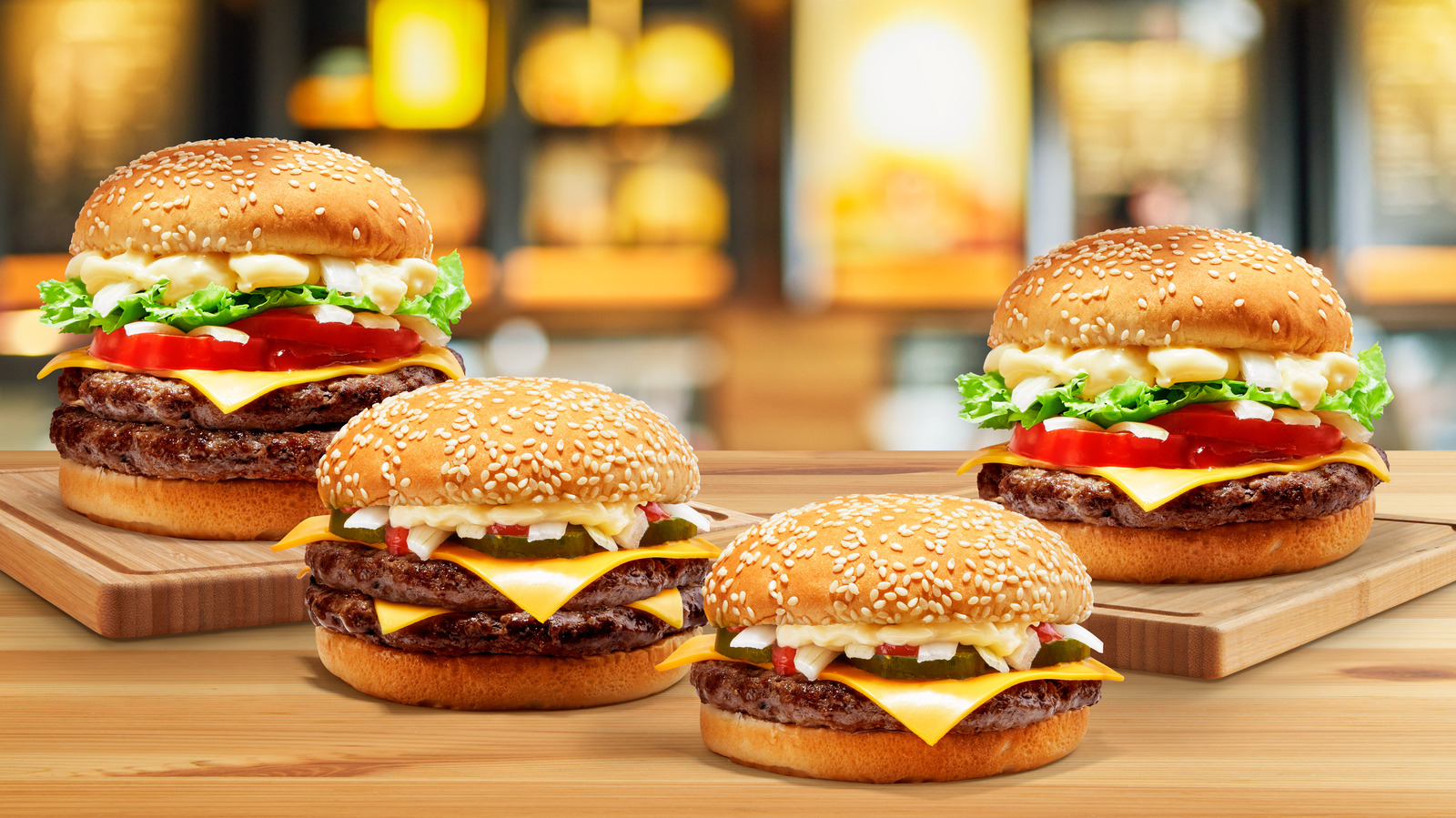King meals, a culinary time period reserved for essentially the most beautiful and esteemed dishes, units the stage for this enthralling narrative. This gastronomic odyssey will take you on a journey via historical past, tradition, and taste, exploring the fascinating world of king meals and their profound influence on our culinary panorama.
From the royal courts of historic civilizations to the bustling kitchens of modern-day eating places, king meals have performed a central function in shaping our culinary traditions and defining our cultural identities. Be part of us as we delve into the fascinating realm of those culinary treasures, uncovering their distinctive traits, exploring their preparation strategies, and inspecting their dietary worth and cultural significance.
Outline and Clarify ‘King Meals’

The time period ‘king meals’ refers to a culinary delicacy or dish that holds a outstanding place in a specific delicacies or tradition, typically characterised by its beautiful style, elaborate preparation, and historic significance.
All through historical past, numerous cultures have revered particular meals as ‘king meals,’ elevating them past mere sustenance to symbols of wealth, energy, and cultural identification. These meals typically embody the culinary heritage and gastronomic traditions of a area, showcasing the ingenuity and artistry of its individuals.
Traits of a ‘King Meals’
A number of defining traits distinguish a ‘king meals’ from strange dishes:
- Beautiful Style:King meals are famend for his or her distinctive flavors and textures, typically achieved via meticulous preparation and the usage of uncommon or costly components.
- Elaborate Preparation:The preparation of king meals typically includes intricate methods, specialised gear, and a excessive degree of culinary talent, leading to visually gorgeous and palate-pleasing creations.
- Historic Significance:Many king meals have deep historic roots, tied to cultural occasions, royal patronage, or culinary milestones, contributing to their enduring reputation and cultural significance.
- Cultural Symbolism:King meals typically function symbols of nationwide delight, regional identification, or cultural heritage, embodying the traditions and values of a specific society.
Examples of ‘King Meals’

Throughout the globe, numerous cuisines boast their very own culinary masterpieces, dishes that reign supreme in taste, texture, and cultural significance. These dishes, referred to as ‘king meals,’ characterize the head of culinary artistry and showcase the distinctive flavors and traditions of their respective areas.
The next desk gives a complete listing of ‘king meals’ from around the globe, highlighting their distinct traits and origins:
| Meals Title | Delicacies | Description |
|---|---|---|
| Sushi | Japanese | Delicate vinegared rice topped with uncooked fish, seafood, or greens, typically served with soy sauce, wasabi, and pickled ginger. |
| Pizza | Italian | A flatbread topped with tomato sauce, cheese, and numerous different components, baked in a wood-fired oven. |
| Peking Duck | Chinese language | A complete duck roasted till its pores and skin is crispy and glazed with a candy and savory sauce. |
| Tacos | Mexican | A corn or wheat tortilla crammed with meat, fish, or greens, typically accompanied by numerous toppings akin to salsa, guacamole, and bitter cream. |
| Paella | Spanish | A saffron-infused rice dish cooked in a big pan with seafood, meat, and greens. |
| Tom Yum Goong | Thai | A spicy and bitter soup made with shrimp, lemongrass, galangal, and kaffir lime leaves. |
| Steak Frites | French | A grilled or pan-fried steak served with crispy French fries. |
| Biryani | Indian | A aromatic rice dish cooked with meat, greens, and spices, typically served with raita or chutney. |
| Haggis | Scottish | A savory pudding made with sheep’s pluck, oatmeal, and spices, historically served with mashed potatoes and turnips. |
| Ceviche | Peruvian | A dish of uncooked fish or seafood marinated in citrus juice, onions, and chili peppers. |
Strategies for Getting ready ‘King Meals’
Getting ready ‘king meals’ includes a spread of culinary methods that improve their taste, texture, and presentation. Totally different strategies showcase the distinctive traits of every ingredient, creating a various culinary expertise.
Grilling
Grilling exposes ‘king meals’ to direct warmth, searing the outside whereas preserving their tender interiors. This technique imparts a smoky taste and grill marks, making a visually interesting dish. Examples embody grilled lobster tails, seared scallops, and charred steak.
Roasting
Roasting includes cooking ‘king meals’ in an oven at excessive temperatures. This technique caramelizes the outside, making a crispy crust whereas conserving the inside moist and flavorful. Roasting is appropriate for bigger cuts of meat, akin to prime rib or roasted rooster, in addition to greens like roasted asparagus or root greens.
Sous Vide
Sous vide is a exact cooking approach that includes vacuum-sealing ‘king meals’ and cooking them in a temperature-controlled water bathtub. This technique ensures even cooking all through, leading to tender and succulent dishes with most taste retention. Examples embody sous vide salmon, beef tenderloin, and greens like carrots or broccoli.
Pan-Searing
Pan-searing includes cooking ‘king meals’ in a sizzling pan with a small quantity of fats. This technique creates a flavorful crust on the outside whereas leaving the inside tender and juicy. Pan-searing is usually used for scallops, fish fillets, and rooster breasts.
Well being Advantages and Dietary Worth of ‘King Meals’

Consuming ‘king meals’ affords a plethora of dietary advantages, owing to their wealthy composition of important nutritional vitamins, minerals, and antioxidants. Incorporating these nutrient-dense meals right into a balanced eating regimen can have a profound influence on total well being and well-being.
The dietary worth of ‘king meals’ varies relying on the particular kind, however they often share a number of key traits. They’re wonderful sources of protein, fiber, nutritional vitamins, and minerals, making them preferrred for supporting a wholesome and energetic life-style.
Nutritional vitamins and Minerals
King meals are significantly wealthy in nutritional vitamins and minerals. They’re supply of vitamin C, an antioxidant that helps defend cells from harm, and vitamin A, which is important for imaginative and prescient and immune perform. Moreover, they’re supply of potassium, which helps regulate blood strain, and iron, which is critical for pink blood cell manufacturing.
Antioxidants
King meals are additionally supply of antioxidants, which assist defend cells from harm brought on by free radicals. Free radicals are unstable molecules that may harm cells and contribute to power illnesses akin to most cancers and coronary heart illness. Antioxidants neutralize free radicals, decreasing their dangerous results on the physique.
Potential Well being Implications, King meals
Incorporating king meals right into a balanced eating regimen can have a number of potential well being advantages. The excessive fiber content material of those meals can assist promote digestive well being, cut back levels of cholesterol, and regulate blood sugar ranges. Moreover, the nutritional vitamins and minerals present in king meals can assist assist immune perform, enhance bone well being, and cut back the danger of power illnesses.
Cultural Significance and Social Impression of ‘King Meals’
King meals maintain profound cultural and social significance in numerous societies worldwide. They transcend mere sustenance, changing into deeply embedded in traditions, rituals, and social interactions.
In non secular ceremonies, king meals symbolize purity, abundance, and divine favor. As an illustration, rice is revered in Asian cultures as a sacred providing to deities and an emblem of fertility and prosperity. Equally, bread holds a central place in Christian communion, representing the physique of Christ.
Social and Financial Impression
King meals additionally play a vital function in social and financial dynamics. Their manufacturing, distribution, and consumption form communities and economies.
- Financial Worth:King meals typically command a premium worth as a result of their perceived worth and desirability. This will generate vital earnings for farmers, merchants, and companies.
- Cultural Id:King meals embody cultural identification and heritage. Their cultivation, preparation, and consumption join individuals to their traditions and sense of place.
- Neighborhood Constructing:King meals foster neighborhood cohesion by bringing individuals collectively for meals, celebrations, and different social gatherings.
- Social Standing:In some cultures, the flexibility to entry and eat king meals is related to wealth, energy, and status.
FAQ Defined
What defines a king meals?
King meals are dishes which might be extremely prized for his or her distinctive high quality, distinctive flavors, and cultural significance. They typically characteristic uncommon or costly components, meticulous preparation methods, and a presentation that elevates them to the realm of culinary masterpieces.
What are some examples of king meals?
Examples of king meals embody dishes akin to Peking duck, caviar, truffles, Kobe beef, and saffron. These dishes are famend for his or her beautiful flavors, luxurious textures, and historic significance.
How are king meals ready?
King meals are sometimes ready utilizing specialised methods and components that improve their flavors and presentation. Some frequent strategies embody sous vide, molecular gastronomy, and the usage of artisanal components.
What are the well being advantages of king meals?
Whereas king meals could not at all times be the healthiest choices, they will supply sure dietary advantages. For instance, caviar is a wealthy supply of omega-3 fatty acids, whereas truffles comprise antioxidants and anti inflammatory compounds.
What’s the cultural significance of king meals?
King meals play a major function in lots of cultures around the globe. They’re typically utilized in non secular ceremonies, festivals, and different particular events. These dishes symbolize wealth, energy, and celebration, and so they maintain a particular place within the culinary traditions of many countries.

